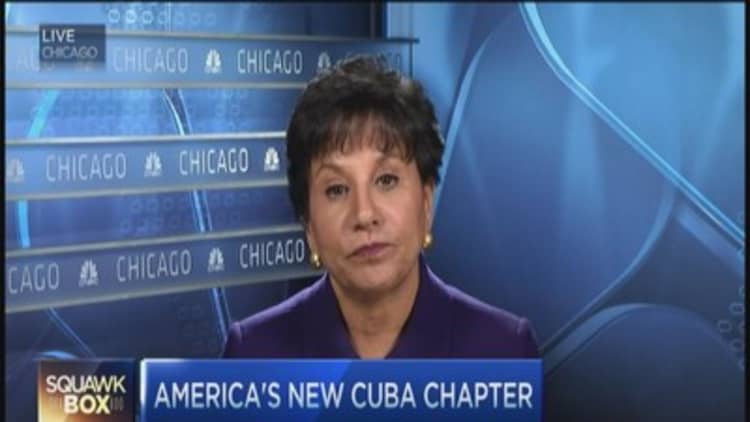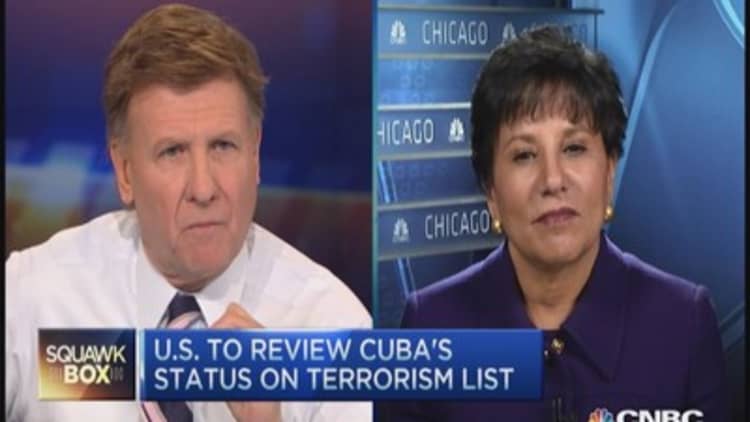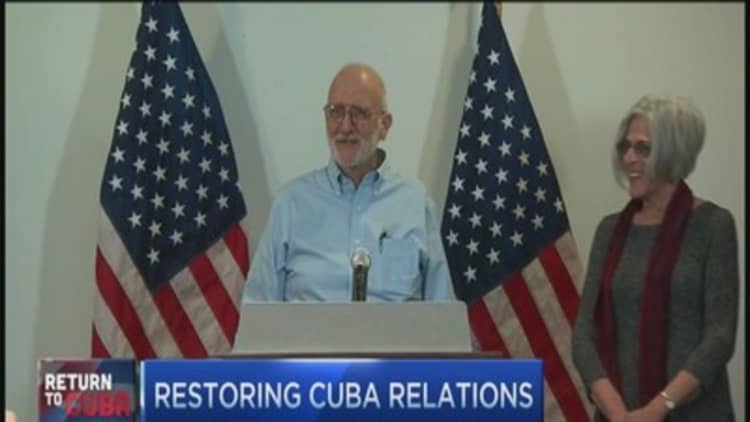


Commerce Secretary Penny Pritzker told CNBC on Thursday said the U.S. is pursuing better relations with Cuba because isolation has not worked. "This is an opportunity for openness and engagement with the Cuban people," she said.
The Cuban government is open to expanding Internet access for its people, Pritzker said in a "Squawk Box" interview.
"We are going to engage in areas like telecommunications," she said, adding that only 5 percent of the Cuban population currently has access to the Internet and only 2 million of the 11.4 million people in Cuba have a cellphone.
"In terms of travel, we've got 12 groups that will be able to have greater access," Pritzker said, including families, religious groups, researchers, academics, journalists and government.
She also mentioned the agricultural sector as another significant opportunity, under the plan President Barack Obama outlined Wednesday.
Earlier on "Squawk Box," former Commerce Secretary Carlos Gutierrez, a Cuban-American who served under President George W. Bush, said business leaders should not bank on entering the Cuban market just yet. "Let's see how this thing is going six months, one year from now," he said.
Read MoreCuba overhaul could backfire in big way: Gutierrez
For more than a year, secret talks had taken place between U.S. and Cuban officials both in Canada and at the Vatican. Pope Francis, the first pontiff from Latin America, wrote letters to Obama and Cuban Leader Raul Castro inviting them to resolve their situation through humanitarian efforts.
Any deal to restore relations that were severed more than 50 years ago was predicated from the U.S. point of view on the release of American contractor Alan Gross—imprisoned in Cuba in 2009 on espionage charges.
"Without dealing fundamentally with the humanitarian issues, the president was not willing to make a deal," Pritzker said.
Cuba released Gross and an intelligence agent who spied for the U.S. and was held there for nearly 20 years. In exchange, the U.S. freed three Cuban intelligence agents who were jailed in America.
—Wire services contributed to this report.


